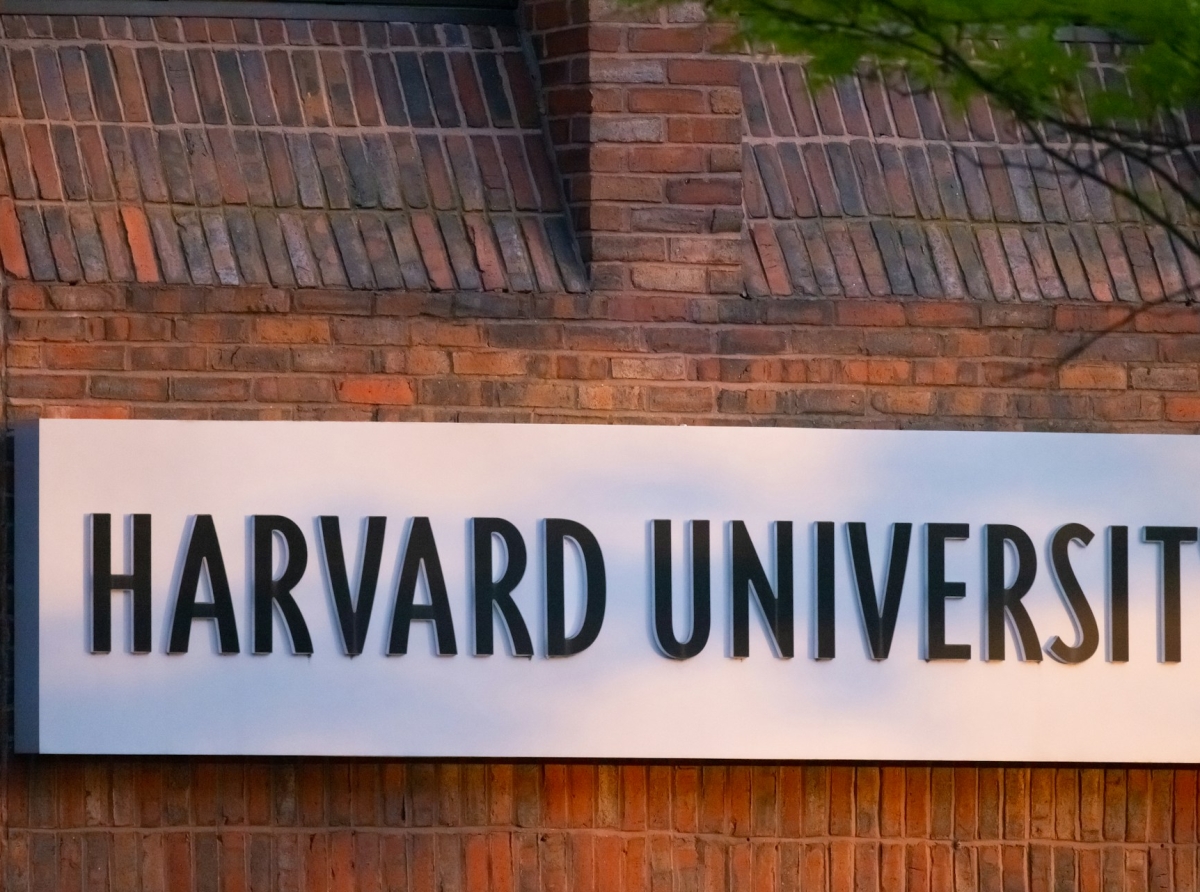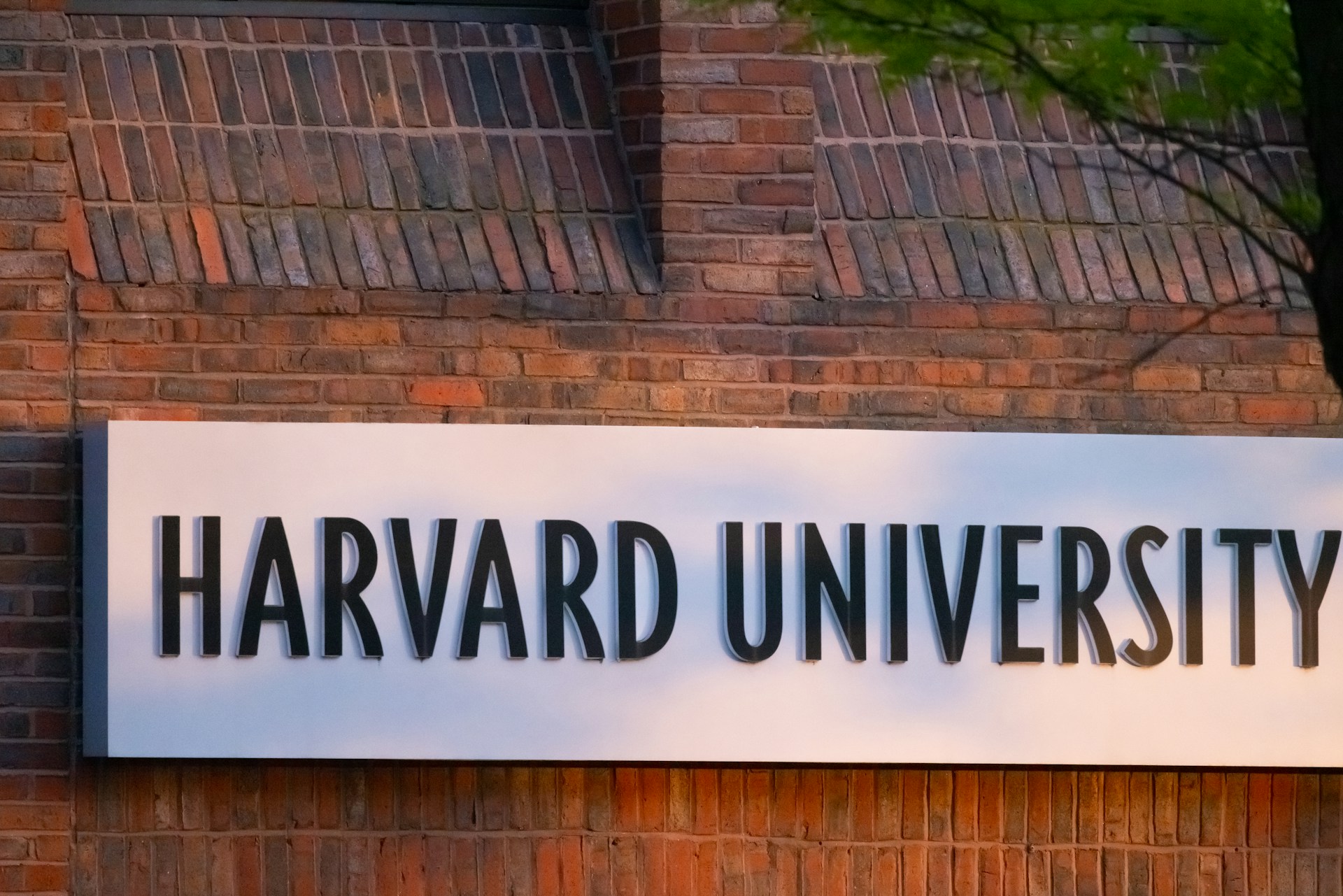Trump Administration Freezes $2.2 Billion in Funding for Harvard University Amid Policy Disputes

Trump Administration Freezes $2.2 Billion in Funding for Harvard University Amid Policy Disputes
In a significant move, the Trump administration announced on Monday that it would freeze long-term grants totaling 2.2billionandmulti−yearcontractsworth60 million for Harvard University.
This decision came after the prestigious institution rejected proposed changes mandated by the administration, sparking a broader debate over federal funding and academic independence.
The freeze was implemented following Harvard’s refusal to comply with several demands from the White House, including the elimination of diversity and inclusion programs, a ban on mask mandates during protests, and a revision of student admission criteria.
These demands were part of a broader effort by the Trump administration to reshape policies at universities across the United States.
This decision came after the prestigious institution rejected proposed changes mandated by the administration, sparking a broader debate over federal funding and academic independence.
The freeze was implemented following Harvard’s refusal to comply with several demands from the White House, including the elimination of diversity and inclusion programs, a ban on mask mandates during protests, and a revision of student admission criteria.
These demands were part of a broader effort by the Trump administration to reshape policies at universities across the United States.

Trump Administration Freezes $2.2 Billion in Funding for Harvard University Amid Policy Disputes
The funding freeze was executed by a task force within the Department of Education, which was established to address alleged antisemitism on college campuses. However, critics argue that the move reflects a politically motivated attempt to penalize institutions perceived as aligning with progressive ideologies.
Universities like Harvard, known for their liberal-leaning policies and emphasis on diversity, equity, and inclusion (DEI), have frequently been at odds with the administration’s conservative agenda.
Background: The Clash Between Harvard and the Trump Administration
The conflict between Harvard University and the Trump administration highlights the growing tension between federal oversight and institutional autonomy in higher education. Over the past four years, the Trump administration has taken a hard stance against what it describes as the "radical left" influence in academia.Universities like Harvard, known for their liberal-leaning policies and emphasis on diversity, equity, and inclusion (DEI), have frequently been at odds with the administration’s conservative agenda.
Key Demands Rejected by Harvard
Elimination of Diversity Programs:The administration criticized Harvard’s diversity and inclusion initiatives, arguing that they promote divisive ideologies and prioritize race-based considerations over merit.
Ban on Mask Mandates During Protests:
In response to nationwide protests over racial injustice, some universities, including Harvard, implemented mask mandates during campus demonstrations to ensure safety amid the COVID-19 pandemic. The White House viewed this as an infringement on free speech and demanded its reversal.
Revision of Admission Policies:
Harvard’s holistic admissions process, which considers factors such as race, socioeconomic background, and extracurricular achievements, has long been a point of contention. The Trump administration sought to challenge these practices, accusing them of perpetuating discrimination.
Harvard’s leadership firmly rejected these demands, asserting that they undermine the university’s commitment to fostering an inclusive environment and upholding academic freedom.
The Role of the Department of Education Task Force
The decision to freeze funding was carried out by a special task force within the Department of Education, created under Executive Order 13892. Officially, the group was tasked with combating antisemitism on college campuses, but critics claim it has been used as a tool to target institutions with progressive values.According to the administration, certain diversity programs and affirmative action policies contribute to hostility against Jewish students. While addressing antisemitism is undoubtedly important, many view the task force’s actions as a pretext for advancing a political agenda.
Impact on Federal Funding
The 2.2 billionin frozen grants in cludes research funding, scholar ships, and infrastructure development projects that are vitalto Harvard’s operations. Additionally, the60 million in suspended contracts affects specific programs tied to federal partnerships. For an institution that relies heavily on government support for groundbreaking research and student aid, this freeze poses significant challenges.
Broader Implications for Higher Education
The funding freeze at Harvard is not an isolated incident. The Trump administration has targeted several other universities, accusing them of being dominated by “far-left radicals” who promote divisive ideologies. Institutions such as Princeton, Yale, and Stanford have also faced scrutiny over similar issues, though none have experienced freezes on the scale of Harvard’s.This crackdown raises critical questions about the relationship between federal funding and academic freedom. Critics argue that tying financial support to compliance with political demands sets a dangerous precedent, potentially stifling innovation and discouraging open dialogue on contentious topics.
Concerns About Academic Independence
Universities thrive when they can operate without undue interference from external forces. By linking funding to adherence to specific policies, the federal government risks undermining the independence that allows academic institutions to explore diverse perspectives and push boundaries.
Moreover, the move could exacerbate existing inequalities. Smaller colleges and universities with fewer resources may feel pressured to conform to avoid losing crucial federal support, even if doing so contradicts their core values.
Public Reaction and Criticism
The decision to freeze Harvard’s funding has sparked widespread debate among educators, policymakers, and the general public. Supporters of the administration applaud the move, viewing it as a necessary step to counteract what they see as indoctrination in higher education. They argue that taxpayer dollars should not fund programs that promote division or suppress dissenting viewpoints.
On the other hand, opponents decry the action as politically motivated retaliation against one of the nation’s most prestigious institutions. Many believe that punishing universities for exercising academic freedom threatens the very foundation of American higher education.
Statements from Key Figures
Harvard President Lawrence Bacow:“We will not compromise our principles or abandon our commitment to creating a diverse and inclusive community. While we regret the loss of federal funding, we remain steadfast in our mission.”
Secretary of Education Betsy DeVos:
“Taxpayer money must be used responsibly. If universities refuse to address legitimate concerns about fairness and accountability, they cannot expect continued support.”
Potential Consequences for Harvard and Beyond
For Harvard, the immediate impact of the funding freeze is likely to be substantial. Research projects dependent on federal grants may face delays or cancellations, while students relying on scholarship funds could encounter financial difficulties. Over time, the university may need to seek alternative sources of revenue, such as private donations or international partnerships, to offset the shortfall.
Beyond Harvard, the freeze sends a clear message to other universities: failure to align with the administration’s priorities could result in similar penalties. This dynamic creates a chilling effect, where institutions may hesitate to implement progressive policies for fear of losing federal support.
Long-Term Effects on Higher Education
If sustained, this approach could lead to a homogenization of ideas within academia, stifling innovation and discouraging intellectual diversity. Furthermore, it risks alienating young people who value inclusivity and social justice, potentially eroding trust in both educational institutions and the federal government.
Conclusion: A Test of Principles and Priorities
The Trump administration’s decision to freeze $2.2 billion in funding for Harvard represents a pivotal moment in the ongoing struggle between federal authority and academic freedom. While framed as an effort to combat antisemitism and promote fairness, the move underscores deeper ideological divides within American society.As universities grapple with these challenges, they must balance the need for financial stability with their commitment to fostering inclusive, equitable environments. Whether this episode marks the beginning of a broader trend or remains an isolated incident depends largely on how future administrations choose to engage with higher education.
Regardless of political affiliations, one thing is clear: the stakes are high, and the decisions made today will shape the landscape of American academia for generations to come.









Report
My comments